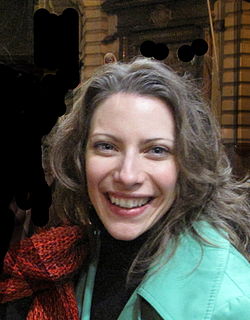A Quote by Salman Rushdie
If you listen to the urban speech patterns there you'll find it's quite characteristic that a sentence will begin in one language, go through a second language and end in a third. It's the very playful, very natural result of juggling languages. You are always reaching for the most appropriate phrase.
Related Quotes
Every sentence has a truth waiting at the end of it and the writer learns how to know it when he finally gets there. On one level this truth is the swing of the sentence, the beat and poise, but down deeper it's the integrity of the writer as he matches with the language. I've always seen myself in sentences. I begin to recognize myself, word by word, as I work through a sentence. The language of my books has shaped me as a man. There's a moral force in a sentence when it comes out right. It speaks the writer's will to live.
Imagine an extrahuman observer looking at us. Such an extrahuman observer would be struck precisely by the uniformity of human languages, by the very slight variation from one language to another, and by the remarkable respects in which all languages are the same. And then he would notice we do not pay any attention to that because for the purpose of human life it is quite natural and appropriate just to take for granted everything that is common. We don't concern ourselves with that, all we worry about are differences.
What happens when you speak colloquial Hebrew is you switch between registers all the time. So in a typical sentence, three words are biblical, one word is Russian, and one word is Yiddish. This kind of connection between very high language and very low language is very natural, people use it all the time.
I think that is one of the first things that I got clear in my mind when I began to play around with fiction, that I had to find a language and it was not in existance at the time. You have put it very well - it wasn't to be taken for granted. You had to go on and search until you found a way through the conversation of English and Igbo. The two languages stuck into each other and tried to find a way to express through one, the medium of the thoughts. That's a very exciting thing to do, a very difficult thing to do.
People in Israel would write in a high register, they wouldn't write colloquial speech. I do a special take on colloquial speech. When I started writing, I thought [the language] was telling the story of this country: old people in a young nation, very religious, very conservative, very tight-assed, but also very anarchistic, very open-minded. It's all in the language, and that's one thing that doesn't translate.
I'm German! Actually, I love my countr, ;I love the language. The German language is very special because it is so precise. There is a word for everything. There are so many wonderful words that other languages don't have. It is impressive to have such a rich language, and I love to work in that language.
I work in Hebrew. Hebrew is deeply inspired by other languages. Not now, for the last three thousand years, Hebrew has been penetrated and fertilized by ancient Semitic languages - by Aramaic, by Greek, by Latin, by Arabic, by Yiddish, by Latino, by German, by Russian, by English, I could go on and on. It's very much like English. The English language took in many many fertilizations, many many genes, from other languages, from foreign languages - Latin, French, Nordic languages, German, Scandinavian languages. Every language has influences and is an influence.
The breakdown of our language, evident in the misuse, i.e., the misunderstanding of nouns and adjectives, is most grave, though perhaps not so conspicuous, in the handling of prepositions, those modest little connectives that hold the parts of a phrase or a sentence together. They are the joints of any language, what make it, literally, articulate.






































